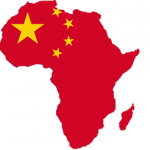Introduction – (C) Kapok Tree Diplomacy, July 2010, All rights reserved. Jeff Dwiggins, author.
As international law extends beyond traditional state-to-state interactions into matters directly involving the rights and wrongs of individuals, its pervasive encroachment directly collides with domestic law on important issues of supremacy, customary norms, jurisdiction, human rights and sovereign immunity. Courts often struggle to navigate the chasm between the two realms of international and domestic law and produce cogent, universally accepted decisions that fall within uncontested limitations and clear jurisdictions.
This paper will explore the challenges, benefits and trade-offs of a non-traditional application of international law in cases involving individuals where the dynamics of tradition, jurisdiction and human rights interact in overlapping spheres of domestic and international law, producing a compelling tug of war between competing interests. I’ll begin by examining the issue of international and universal human rights.
The posts, views and opinions expressed on this site are completely my own and do not represent the views or opinions of the Department of Defense (DoD), the Department of the Navy (DON) or any of the Armed Forces.
Section One – International Human Rights v. The Interests of States
The Preamble of the United Nations (UN) Charter calls upon member states to “reaffirm faith in fundamental human rights, in the dignity and worth of the human person, in the equal rights of men and women and of nations large and small,” while Articles 55 encourages member states to promote “universal respect for, and observance of, human rights and fundamental freedoms for all without distinction as to race, sex, language, or religion” (“Preamble” and “Chapter IX”). A thorough reading of the Charter, however, doesn’t uncover any definition or mandate for human rights which has complicated a universal embrace of uniform standards for human rights. Read more






